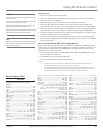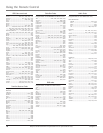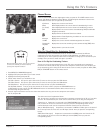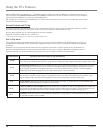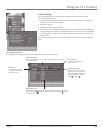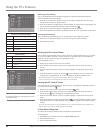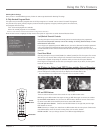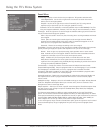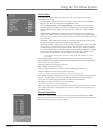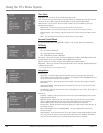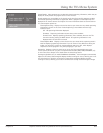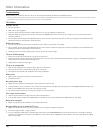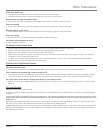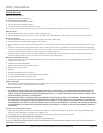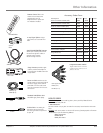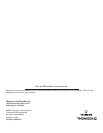
Chapter 4 25
Using the TV’s Menu System
Graphics contained within this publication are for representation only.
Closed Caption Many programs are encoded with closed-captioning information, which lets you
display the audio portion of a program as text on the TV screen.
Closed captioning is not available on all channels at all times. Only specific programs encoded
with closed-captioning information are applicable. When a program is closed captioned, CC is
displayed in the channel banner. See Chapter 3 for more information about the channel banner.
The closed caption options are:
Closed caption setting Displays a choice list that lets you choose the way closed captioning
information is shown on the screen. Closed-captioning is not available with the high
resolution input.
Off No captioning information displayed.
On always Captioning information shown always, when available.
On when mute Displays captioning information, when available, whenever the TV’s
sound is muted by pressing the MUTE button. The captioning information is not
displayed when the sound is not muted.
Closed-Caption Mode Displays a choice list that lets you choose which captioning mode is
used for displaying captioning information. If you are unsure of the differences among the
modes, you may prefer to leave the closed captioned mode set to CC1, which displays
complete text of the program in the primary language in your area.
Autotuning Displays a choice list that lets you set up the TV to automatically tune to the
correct input channel when you press a component button (VCR1, DVD, VCR2, SAT•CABLE, etc.)
on the remote. Go to Chapter 3 for details about the Autotuning feature.
Convergence (available only on models D40W20 and D52W20) Auto convergence automatically
adjusts the TV’s tubes; Red convergence displays the Red convergence screen, allowing you to use
the arrow buttons to align the red and green images; Blue convergence displays the Blue
convergence screen, allowing you to use the arrow buttons to align the blue and green images.



